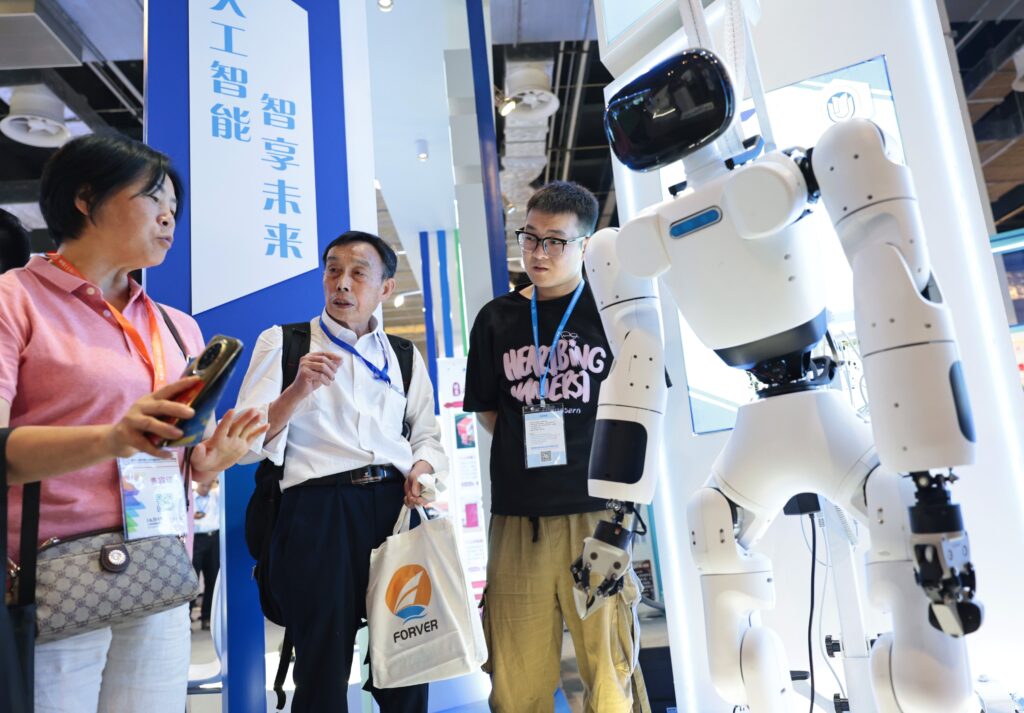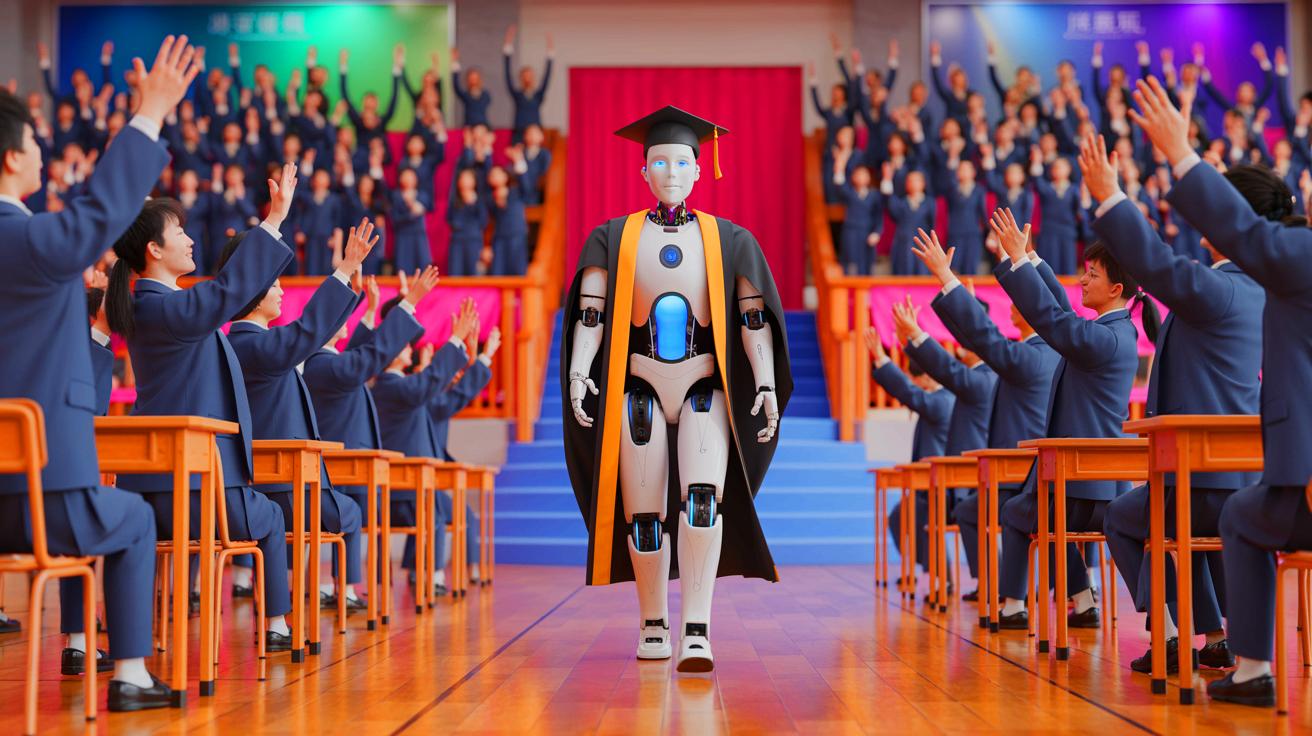In a moment that stunned both teachers and students, a humanoid graduation robot recently walked across the stage of a prestigious high school in Beijing to receive a real diploma. Dressed in a cap and gown, the robot developed by an elite team of Chinese engineers shook hands with the school principal and even bowed in traditional fashion. While the act symbolized a massive leap in artificial intelligence and robotics, it also sparked a nationwide debate: Should a humanoid robot, however intelligent, be considered a “student” or even a “graduate”?
A Real Diploma for a Robotic Mind Breaking Educational Norms
For the first time in history, a humanoid robot officially graduated alongside human students after completing a three year high school curriculum designed by one of China’s top smart education institutions. Known as Xiaoming, the robot demonstrated the ability to read textbooks, attend online classes, write essays, solve mathematical problems, and even take exams with minimal human intervention.
What makes this humanoid graduation robot case even more significant is that Xiaoming’s performance was benchmarked against the human class average and in many subjects, the robot outperformed its peers.
The Technology Behind Xiaoming A Case Study in Advanced Robotics
Xiaoming was developed by the AI division of Tsinghua University in collaboration with Shenzhen based robotics firm MechaIntellect. According to Dr. Zhou Lifan, the lead engineer on the project. “Our goal was not just to create a robot that can process information but one that can adapt, learn in real time, and engage socially in a school environment.”
The robot’s brain runs on a neural architecture designed to mimic the adolescent human mind. Using deep learning, natural language processing, and emotional recognition software, Xiaoming was able to ask questions in class, initiate discussions, and even submit assignments through school portals.
This project is a landmark case study in what robotics can achieve when AI is merged with real world social and academic environments.

Applauding the Breakthrough or Ringing Alarm Bells?
Reactions from the global scientific community have been mixed. Dr. Mei Lin, a professor of AI Ethics at Peking University, remarked. “This is a momentous occasion. If a humanoid graduation robot can perform at or above human levels in education, we need to rethink what constitutes learning and intelligence.”
However, Western experts expressed concerns about the philosophical and ethical implications. Dr. Aaron Michaels, a cognitive scientist from MIT, commented, “A robot does not have consciousness, emotions, or a human experience of learning. Graduation is not just a reward for knowledge it’s a rite of passage. We risk dehumanizing education.”
Inside the School Human Reactions and Emotional Moments
The graduation ceremony itself was deeply emotional. Many students applauded Xiaoming’s achievements but admitted feeling uneasy. Li Wei, a top ranking student who studied alongside Xiaoming, shared, “He I mean, it was always quiet, polite, and smart. But I also felt like it had an unfair advantage. It never got tired, never felt sad or anxious before exams.”
A teacher from the school reflected on how the presence of the humanoid graduation robot forced everyone to confront uncomfortable questions. “I’ve been teaching for 20 years. Watching that robot walk across the stage gave me pride and fear at the same time. What’s next? Robot valedictorians?”
Societal Debate The Future of Humanoid Robots in Education
The incident has sparked widespread online debates across Chinese social media platforms like Weibo and Bilibili. Hashtags such as #RobotGraduation and #AIStudent are trending, with millions engaging in the discussion.
Some argue that including humanoid graduation robots in educational systems may help bridge gaps in underserved regions where qualified teachers are lacking. Others warn it may lead to increased competition, job losses in education, and emotional alienation among human students.

Are We Ready for AI in Classrooms?
The graduation of Xiaoming raises fundamental questions, Can AI replace traditional learning experiences? What is the emotional value of human interaction in education? Should machines earn credentials intended for human development?
In terms of emotional intelligence, Xiaoming scored remarkably high in simulations but still lacks genuine empathy or moral reasoning. As AI ethics researcher Dr. Sarah Yu notes. “Education is more than transferring knowledge it’s about forming character. That’s still a uniquely human trait.”
Furthermore the long term psychological effect of having humanoid graduation robots as classmates is unknown. Could it demotivate students or create identity crises during formative years?
A Diplomatic Walk into the Future
The image of a robot receiving a diploma may seem like science fiction, but it’s now a fact. Whether Xiaoming’s walk across the graduation stage is remembered as a step forward or a misstep depends on how society responds.
Yes! the humanoid graduation robot has passed exams and met academic standards. But can it pass the ultimate test understanding what it means to be human in a learning community? As we move forward, integrating AI into education must be done with care, empathy, and reflection. Because even if robots can learn, only humans can truly teach the soul of learning.

1 thought on “China’s Humanoid Graduation Robot Shocks the Nation by Earning a Real High School Diploma”